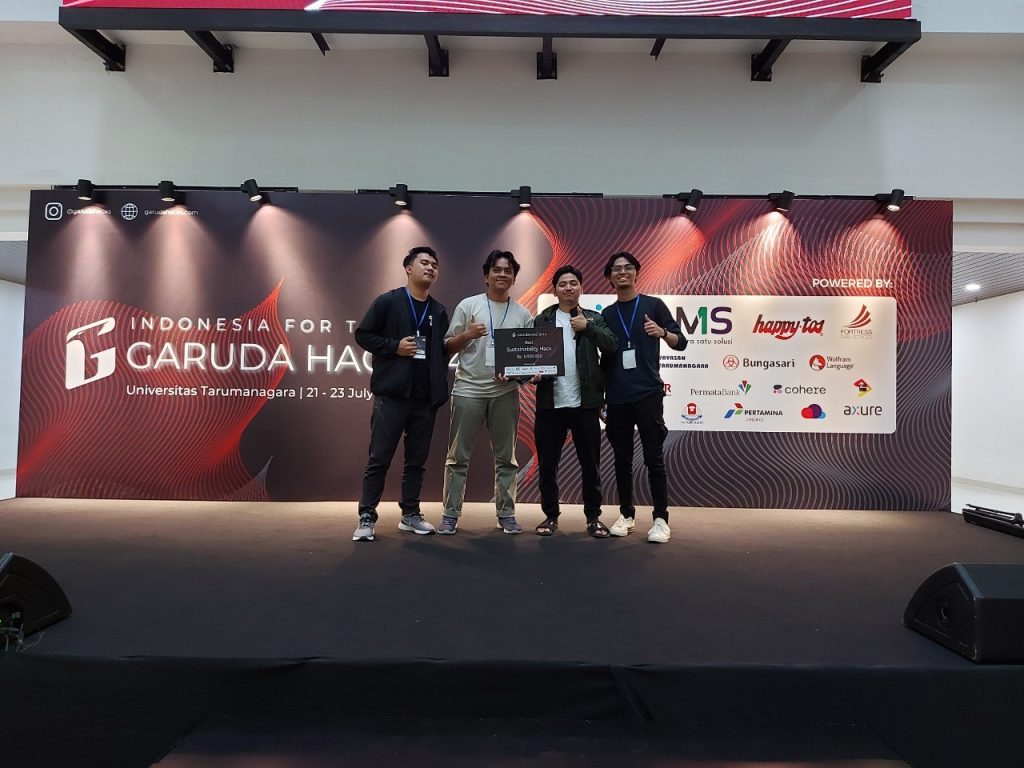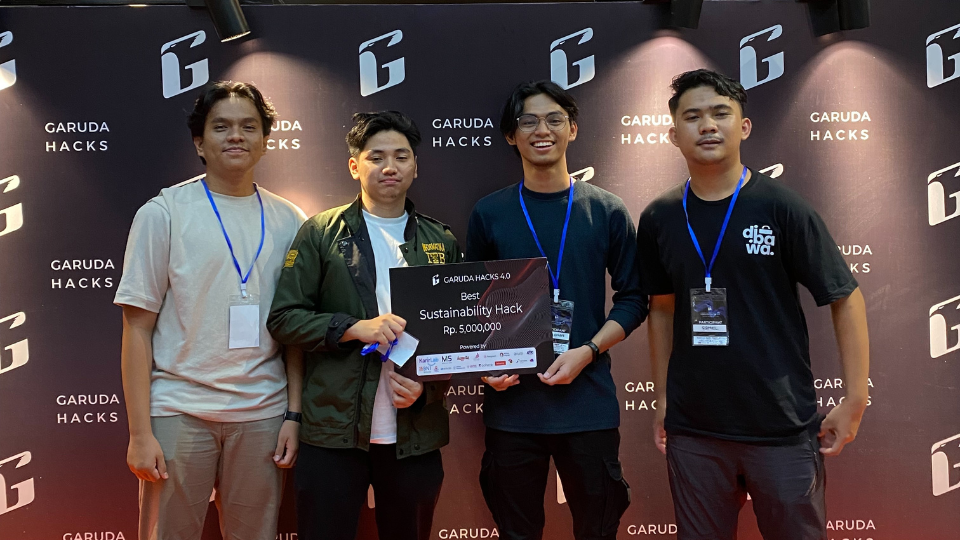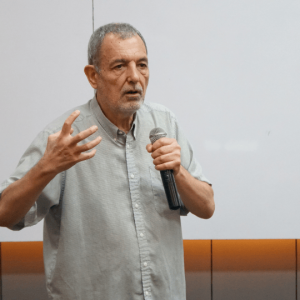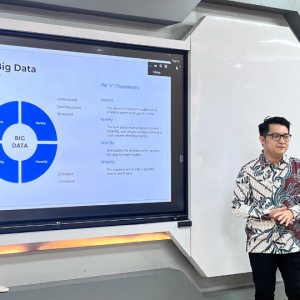The collaboration of four ITB students across departments won the Best Sustainability Hack award in the Garuda Hacks 4.0 competition in July 2023. The four students are the members of Binabisa: Ramel Akil Pratama (Management 2024), Fajar Herawan (Informatics Engineering 2024), Muhammad Hanan (Informatics Engineering 2024), and M Farhan Fahrezy (Informatics Engineering 2024).
Binabisa is one of 70 projects included in this hackathon. Binabisa is an AI-based job assessment application for people with disabilities in Indonesia. This initiative is motivated by the fact that only 2 out of 5 people with disabilities are employed in Indonesia, raising concerns about the adequacy and fairness of employment opportunities for them.
“Therefore, we were inspired to develop a solution that leverages AI’s capabilities to level the playing field and address this stark inequality and discrimination,” Ramel said on October 19.
Ramel, a Management student at the SBM ITB, said that this was the first time he had participated in a hackathon competition, especially a hackathon closely related to coding, which is far from management. Coming from different majors is not a barrier but an opportunity to get perspectives from various sides and share tasks from ideas to implementation. In this hackathon, there are three topic choices: Sustainability, the future of AI, and youth empowerment.
“After in-depth research and discussions, we unanimously decided to focus on the issue of inclusivity for our project. Our idea came from a critical question: What does the future of AI look like?” said Ramel.
According to Ramel, Binabisa aligns with goals 8 and 10 of the UN Sustainable Development Goals (SDG). SDG 10 eliminates inequality, while SDG 8 promotes decent work and economic prosperity. Ramel revealed that the team’s motivation also includes an Environmental, Social, and Governance (ESG) perspective, promoting diversity and accessibility using AI and serving a wide range of disabilities.
Garuda Hacks 4.0 is a hackathon for the world’s best talents to compete to solve the world’s most pressing challenges using technology. This year, it was held offline for the first time. This competition was held on campus 2 of Tarumanagara University, with a total time of 36 hours. Ramel advised his fellow students who want to compete that there is no need to copy other people; it is okay to make mistakes and explore our interests.






